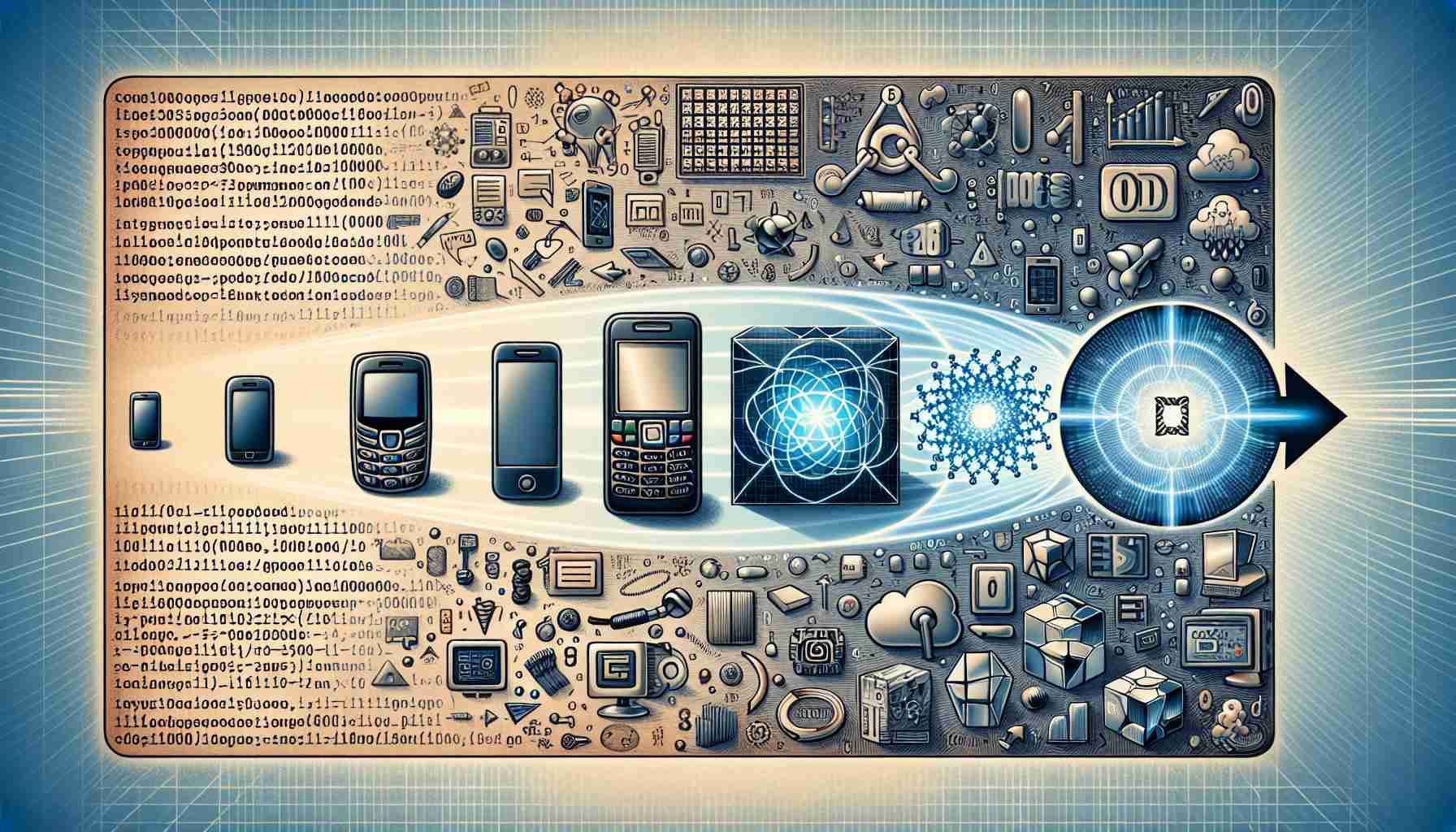- Nokia’s origins trace back to 1865 as a pulp mill, with a history including the production of toilet paper.
- The company currently supports over 70% of U.S. fiber-connected homes and aids over 1,000 public sector organizations worldwide.
- Quantum computing offers the potential to solve problems drastically faster, posing risks to current encryption methods.
- The upcoming “Q-Day” may compromise existing encryption standards, impacting industries such as healthcare and telecommunications.
- The transition into the Quantum 2.0 age calls for improved cryptographic solutions to enhance cybersecurity.
- Artificial intelligence plays a dual role, facilitating quantum advancements while also introducing new cybersecurity challenges.
Once a titan of the mobile phone industry, Nokia’s legacy stretches back to 1865 and encompasses extraordinary pivots that may surprise you. Did you know that the Finnish company initially started as a pulp mill? It even produced toilet paper! Fast forward to today, Nokia is shaping our digital landscape through cutting-edge technology and strategic acquisitions, including the renowned Bell Labs, famous for pioneering innovations like lasers and optical fibers.
Nokia now proudly supports over 70% of US fiber-connected homes and is a backbone for more than 1,000 public sector organizations globally. With the advent of quantum computing, this technology could revolutionize industries by solving complex problems a million times faster than today’s supercomputers. Imagine cracking encryption in seconds that would normally take millennia!
But this quantum leap comes with risks. Industries reliant on conventional encryption may be vulnerable. Quantum computers threaten not just big tech but also essential services like healthcare, telecommunications, and public safety. This looming risk, referred to as “Q-Day,” signifies a time when current encryption methods might be rendered obsolete, sparking a significant update across the ICT landscape.
As we enter the Quantum 2.0 age, the call for robust cryptographic solutions grows louder. Meanwhile, artificial intelligence stands at the crossroads—empowering quantum advancements while simultaneously presenting new threats. The key takeaway? As Nokia evolves, so too must our approach to cybersecurity in this rapidly changing technological frontier. Stay informed, because the future of security may depend on it!
Is Nokia Ready for the Quantum Computing Revolution?
Nokia’s Evolution: Insights, Trends, and Future Directions
Nokia’s historic journey from a pulp mill in 1865 to a front-runner in digital technology is a remarkable tale of adaptation and innovation. Today, it is at the forefront of several transformative trends and technologies that promise to reshape various industries, including telecommunications, healthcare, and cybersecurity.
# Market Forecasts and Trends
With its strong position in the fiber-optic market—supporting over 70% of fiber-connected homes in the US—Nokia is poised to capitalize on the growing demand for high-speed internet and digital infrastructure. The global fiber optics market is expected to reach approximately $10 billion by 2027, driven by advancements in telecommunications and the surge in data consumption.
# Key Innovations and Use Cases
Nokia is not only focusing on traditional telecommunications but is actively exploring innovations in quantum computing. Quantum technology has the potential to reimagine data management, security, and telecommunications. Companies are starting to leverage Nokia’s advancements in quantum-safe encryption to safeguard data against potential future threats posed by quantum computing.
# Security Aspects and Risks
As quantum computing progresses, the implications for cybersecurity are significant. Nokia is leading initiatives to develop post-quantum cryptographic methods to ensure that its services remain secure in the face of evolving threats. The concept of “Q-Day” signifies a crucial point when current encryption methods may fail, demanding upgrades to security protocols.
Limitations and Considerations
Despite its robust advancements, Nokia faces challenges in scaling quantum technologies and ensuring their practical application. Additionally, the integration of AI alongside quantum computing introduces complexities that must be addressed to ensure security and efficiency.
# Pricing and Compatibility
Nokia’s products vary widely in pricing, reflecting their advanced features and capabilities. As businesses seek to upgrade their ICT infrastructure, understanding the compatibility of their existing systems with Nokia’s innovations in quantum and AI technology will be crucial in making informed decisions.
—
Frequently Asked Questions
1. What steps is Nokia taking to prepare for quantum computing?
Nokia is conducting research and development in quantum-safe encryption methods while also exploring partnerships with tech companies specializing in quantum computing to integrate this technology into its offerings.
2. How does Nokia’s technology impact public safety and healthcare?
By providing reliable communication infrastructure and secure data transmission, Nokia plays a crucial role in enhancing the operational capabilities of public safety organizations and hospitals, particularly as they adopt more digital solutions.
3. What are the potential consequences of failing to adopt post-quantum cryptography?
Failing to upgrade security measures could lead to increased vulnerability for organizations, exposing sensitive data to cyber threats and potentially crippling essential services, particularly in critical sectors like healthcare and finance.
# Suggested Related Links
Nokia Official Site
Bell Labs Overview
Networks Technology












